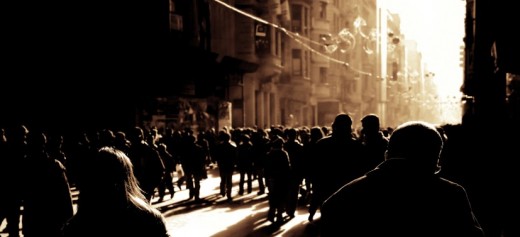.22 caliber bullets ripping into the bodies of nineteen people in Tuscon, Arizona, was just the beginning of the wounds felt in America in the last few days. A disconnected young man, a handgun, and a scrambled mind is all it took for one minute of horror to erupt in the sheer ordinariness of a supermarket parking lot. Six dead. A U.S. Congresswoman shot in the head, but surviving.

Next were the fusillades of words–accusations, recriminations, thrashing for understanding. Is there a connection between bitter political rhetoric and acts of violence? Or, at least, does a society suffer when the business of governing, law and order, is seen as a war unfolding, and victory for one’s tribe as the only suitable outcome?
And now there are new discussions about civility. Is it possible for leadership to unfold in an atmosphere of respect, or is that too much to hope for? Will leaders be able to address society’s ills and needs in civil ways, or is battle the only way?
The calls for civility have made me recollect a definition forged by Augustine of Hippo sixteen centuries ago in his massive work, De Civitate Dei, The City of God. At that time there was real political bloodshed going on. Literally. Real tribalism in the form of hordes from the uncivilized north knocking down the walls of Roman cities and then culture and society. Some blamed the Christians for making the gods angry. No one could make sense of the chaos. This was not supposed to happen.
Augustine’s civil reply, an explanation of the civility of The City of God, was essentially this: it is a violent world, and no one has a way to shut that off. It is not any one person’s fault; it is not any group’s fault. The one hope that people have is to consciously live under the order and peace that comes from the reign of God. This spiritual city (which is not the same thing as the church) is a dynamic reality–the way for real human flourishing. It is to choose faith, and to follow the instructions of the God of all peace. The alternative, The City of Man, is the chaos and violence that happens when we allow ourselves to be driven by our baser motives–the lust for power, the drive for possessions. These are not matters of mental illness, but of spiritual illness.
Every man or woman makes his or her decision on that spiritual citizenship. The City of God and the City of Man exist at the same time and occupy the same physical space. The question is: what city do you want to live in?
(Three weeks from today, on February 3, we will begin a study and discussion on spiritual leadership today. The tragedy in Tuscon and its aftermath is a sure indicator that we need good spiritual leadership today. I hope you’ll join in.)